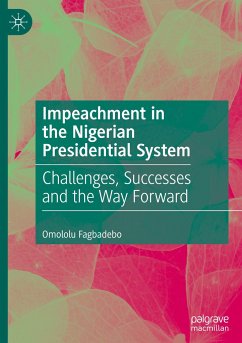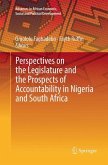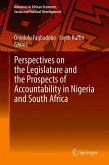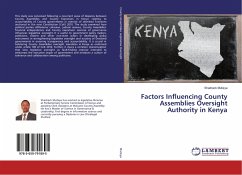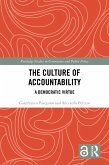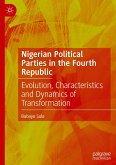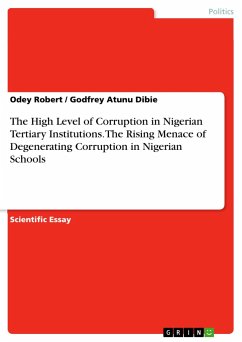This book explores the politics associated with the exercise of the legislative power of impeachment as intended by the drafters of the Constitution in Nigeria. It interrogates the exercise of the power of impeachment with reference to the intended purpose and examines its failures in the cases of impeachment in the country. It analyzes the interplay of power in the governing institutions in Nigeria's political system, which involved the understanding of a web of interactions among elites within a political structure relating with others outside its sphere of operation. It presents an analysis of the politics associated with impeachment within the framework of the activities of different political actors operating in different political structures assigned to perform certain statutory roles in the political system.
The book shows how the selective use of impeachment provisions as instrument of political vendetta and harassment has weakened the potency of this oversight power of the legislature thereby engendering accountability problem in the Nigerian presidential system.
The book shows how the selective use of impeachment provisions as instrument of political vendetta and harassment has weakened the potency of this oversight power of the legislature thereby engendering accountability problem in the Nigerian presidential system.

